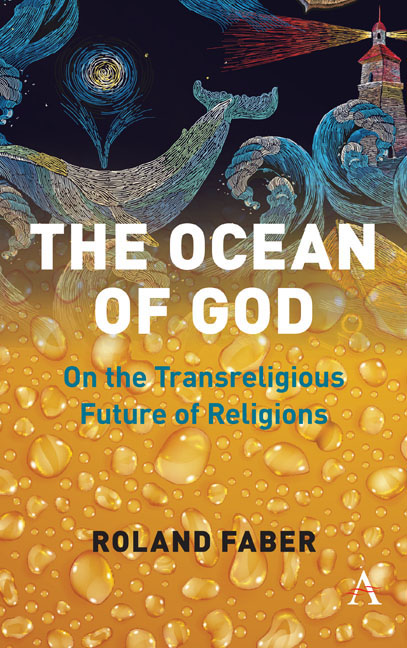Book contents
- Frontmatter
- Dedication
- Contents
- Introduction
- Part I Paradigms of Unity and Plurality
- Part II Negotiations of Multiplicity
- Part III Transreligious Horizons
- Chapter Eleven The Transreligious Discourse
- Chapter Twelve Other Religions: From Coinherence to Coinhabitation
- Chapter Thirteen The Earth and Other Worlds: A Story of Cosmic Magnitude
- Chapter Fourteen The Future of Religions
- Chapter Fifteen One with All Religions
- Glossary
- References
- Index
Chapter Eleven - The Transreligious Discourse
from Part III - Transreligious Horizons
Published online by Cambridge University Press: 09 July 2019
- Frontmatter
- Dedication
- Contents
- Introduction
- Part I Paradigms of Unity and Plurality
- Part II Negotiations of Multiplicity
- Part III Transreligious Horizons
- Chapter Eleven The Transreligious Discourse
- Chapter Twelve Other Religions: From Coinherence to Coinhabitation
- Chapter Thirteen The Earth and Other Worlds: A Story of Cosmic Magnitude
- Chapter Fourteen The Future of Religions
- Chapter Fifteen One with All Religions
- Glossary
- References
- Index
Summary
Consider the ocean, how serene it lieth, how majestically it reposeth within its bed. Yet the winds of the will of the eternal Beloved cause countless ripples and innumerable swells to appear upon its surface, each wave distinct and divergent from the others.
— Bahá’u'lláhThe analysis of the mystery of distinction and unity and its interpretation from the perspective of polyphilic pluralism in this proposal itself rests on a transreligious understanding of religious pluralism and the unity of religions, at this juncture intimating its deeper exploration regarding its presuppositions, implications and consequences, and of some of the vocabulary already used to convey the meaning of the term “transreligious.” The word and concept “transreligious” have become more visible in the past years. While some relate “transreligious” to “transgender” or hybrid spirituality, even that in between postmodern attitudes of religious and irreligious postures, others use it more or less indifferent from “interreligious,” or for the fact of fluency between religions. Those are important indications for a new global consciousness with regard to religion— especially at the beginning of a new millennium and in expectation of a human future in it. Yet what are the reasons for such a conversion in terms? That the “trans” in “transreligious” has become relevant today more than ever before, I think, is partly understandable as a reaction to the perceived limitations of interreligious dialogues and multireligious encounters to grapple with the question of truth and practices of mutual amicability (especially in light of unabated violent religious conflicts and the global perspective on the human predicament in its ecological vastness), partly by the urge to seek a new interpretive horizon of our current situation of global interference between all areas of human life from all regions of the world in almost timeless speed. The recognition that, because of this global immediacy, no confessional theological endeavor can, today, only be addressed to the adherents of a specific religion or spiritual persuasion has amounted to the converse insight that all theological reflections, but (in difference from classical Religionswissenschaft) not excluding the question of truth, must be situated in a global religious and pan-human context, being sensitive to the common cultural spaces of multireligious interaction. Today, the religious other is a neighbor who will be impacted by such considerations, but also is immediately able to answer such accounts of other's theological perception of her own tradition.
- Type
- Chapter
- Information
- The Ocean of GodOn the Transreligious Future of Religions, pp. 125 - 136Publisher: Anthem PressPrint publication year: 2019



